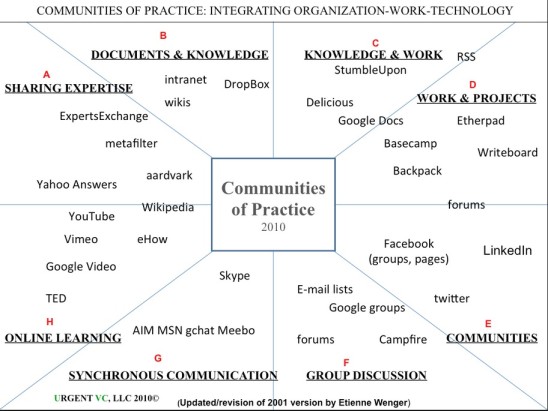http://www.npr.org/2015/01/04/374780916/a-shadow-economy-lurks-in-an-electronics-graveyard
notes under the NPR article and on its Facebook posting most interesting, as usually. E.g.:
I wrote my final paper in college english on this subject. I believe that ultimately it is the producers of electronic devices (like apple) responsibility to rebuy and recycle older electronics. especially whwn they come out with a new device every year
I did a report on this kind of thing in college, just for a basic writing class. First world pollution of the third world is a big and nasty problem that’s not given great focus.
ISTE Launches Digital Citizenship Academy Series for Educators
http://thejournal.com/articles/2014/11/18/iste-launches-digital-citizenship-academy-series-for-educators.aspx
“For educators to prepare students to be good digital citizens, it is crucial that they have a clear understanding of the many components of digital citizenship and consistently model the behavior.” said Wendy Drexler, ISTE chief innovation officer, in a prepared statement
Plan for today, Mon, Nov 17 class session:
Parent involvement in their children’s social emotional and academic development.
- Introduce myself, who I am, who do I work with. Why is it good to know IMS and consider working with IMS. How to contact us – 5 min
- Start with a video from the following IMS blog entry: https://blog.stcloudstate.edu/ims/2013/05/01/on-digital-literacy/ :
http://youtu.be/d5kW4pI_VQw – 2 min. What is the video about, how do students think it relates to their class (parent involvement in their children’s social emotional and academic development) – about 5 min
- Group work assignment – what is digital literacy and why is it important to people of all ages:
Students work in groups and outline a definition of digital literacy and a list of 5 reasons about the importance – 5 min
Study and discuss the following infographic (5 min)
https://blog.stcloudstate.edu/ims/2014/10/16/early-learners-tech-use/
For and against children spending time with technology. Gaming, social media, and computer use in general as addiction. “Disconnect/Unplugged” (Sherry Turkle) versus contemplative computing and similar meditative and contemplative practices: https://blog.stcloudstate.edu/ims/2013/11/05/getting-unplugged/
- Discussion on how does digital literacy vary between age groups; how do people from different ages communicate. How do they work together and help each other when learning about digital literacy. Who is the best source for students to learn about digital literacy (hint – IMS ;)) – 10 min
Suggested source for more information: The SlideShare presentation on the IMS blog entry: https://blog.stcloudstate.edu/ims/2013/05/01/on-digital-literacy/: http://www.slideshare.net/dajbelshaw/etmooc-t3-s1-digital-literacies-with-dr-doug-belshaw
- Discussion on digital identity, digital citizenship, privacy and security. – 10 min
https://blog.stcloudstate.edu/ims/2013/10/03/digital-identity-and-digital-citizenship/
- Questions and suggestions regarding
http://www.fastcompany.com/3037962/then-and-now/the-truth-about-teenagers-the-internet-and-privacy
danah boyd, a professor at Harvard University’s Berkman Center for the Internet and Society, argues that teenagers closely scrutinize what they share online because it is a way for them to negotiate their changing identities. In her book, It’s Complicated: The Social Lives of Networked Teens, she describes how teenagers carefully curate their feeds based on the audience they are trying to reach.
Adolescents have been migrating away from Facebook and Twitter over the last few years, showing preference for sites like Snapchat, Whisper, Kik, and Secret that provide more anonymity and privacy. Part of this transition can be explained by the fact that the older social media sites stopped being cool when parents joined them, but perhaps another reason could be that teenagers growing up in the post-Snowden era implicitly understand the value of anonymity. For teens, it’s not a matter of which platform to use, but rather which works best in a particular context.
http://ideas.ted.com/2014/07/01/do-you-know-what-youre-revealing-online-much-more-than-you-think/
Right now in the U.S. it’s essentially the case that when you post information online, you give up control of it.
Some companies may give you that right, but you don’t have a natural, legal right to control your personal data. So if a company decides they want to sell it or market it or release it or change your privacy settings, they can do that.
The point is, we really don’t know how this information will be used. For instance, say I’m a merchant — once I get information about you, I can use this information to try to extract more economic surplus from the transaction. I can price-discriminate you, so that I can get more out of the transaction than you will.
I’m interested in working in this area, not because disclosure is bad — human beings disclose all the time, it’s an innate need as much as privacy is — but because we really don’t know how this information will be used in the long run.
http://blogs.kqed.org/mindshift/2014/01/how-byod-programs-can-fuel-inquiry-learning/
Inquiry-based learning grounded in authentic projects go hand in hand with BYOD.
This shift allows teachers to address issues of digital citizenship like privacy, respecting others’ work, and standing up to improper uses on a daily basis as they arise.
“If they’re using that laptop in the classroom that has so much power and another kid is using a smartphone that doesn’t have quite that power or screen real estate, it requires collaboration,”
http://www.entrepreneur.com/article/238103
“Bitcoin is better than currency in that you don’t have to be physically in the same place and, of course, for large transactions, currency can get pretty inconvenient.”

